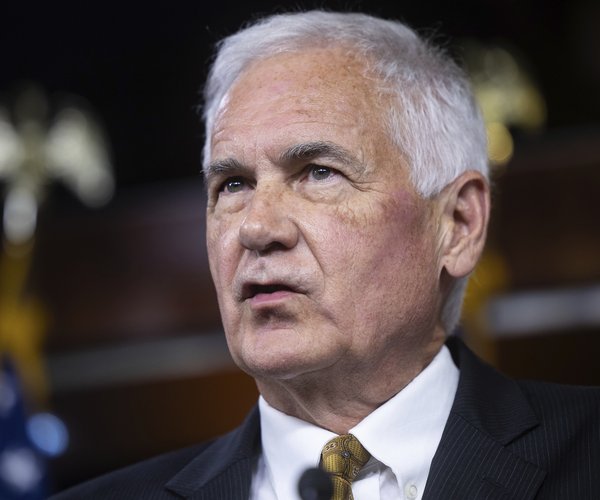Laura’s Law, which allows for court-ordered assisted outpatient treatment, has proven successful in multiple counties throughout the state, reducing emergency situations for those suffering from mental illness while at the same time saving valuable funds. In Stanislaus County, advocates from the National Alliance on Mental Illness are working to implement the law here at home.
Rhonda Allen, a member of NAMI, believes the law could be instrumental in tackling the issue of homelessness throughout the county.
“If you look around our streets, you see people everywhere. It’s not a small issue, and if our laws don’t allow for intervention our hands are tied,” said Allen. “We hear from family members all the time who say they can’t get their loved one any help. If they’re in denial and say, ‘I’m not sick and don’t need help,’ then no one helps them.”
Laura’s Law plays an essential role in getting those on the streets who may suffer from mental illnesses, such as schizophrenia or bipolar disorder, the help they need to become self-sufficient once again, Allen explained. She added that current homeless advocacy groups in the area focus on outreach and engagement, which often excludes the estimated 40 percent of Stanislaus County’s homeless population that suffer from a mental illness.
“What they’re doing is only addressing the people who are likely to come in for help — none who are seriously mentally ill are going to come to a homeless access center,” said Allen.
Laura’s Law was adopted by California in 2002, but individual counties have the power to decide whether or not to implement the law. To qualify for the program, the person in question must have a serious mental illness plus a recent history of psychiatric hospitalizations, jailings or attempts of serious violent behavior. The law allows a relative, roommate, mental health provider or police or probation officer to petition the courts to compel outpatient treatment for the individual, through which they will receive housing, transportation and mental health care.
Along with addressing the homeless population in the area, Allen also hopes that implementation of the law in Stanislaus County can help avoid future tragedies stemming from a lack of mental health care. Oftentimes after coming into contact with law enforcement officers and being referred to local clinics for treatment, those suffering from mental illness are back on the street the very same day, putting themselves and the public at risk.
“They never have any follow through or treatment, so they go right back to their psychotic behavior,” said Allen. “There are so many tragedies that we hope can be prevented.”
Multiple counties throughout California have implemented Laura’s Law, including San Francisco County and Nevada County. According to mentalillnesspolicy.org, Nevada County’s hospitalization was reduced by 46 percent, incarceration by 65 percent and homelessness by 61 percent. In San Francisco County, 108 people were referred in the law’s first year of implementation, with 40 percent having been homeless in the previous three years.
“If we implement the program here, I believe we could have that amount of success,” said Allen.
Allen, along with other advocates from NAMI, has made numerous pleas to the Board of Supervisors to implement the law in Stanislaus County, using the testimonies of families whose loved ones have been failed by the crippled mental health care system. While District 1 Supervisor Kristin Olsen has shown support for Laura’s Law, the group is still working to get the remaining supervisors on board. Most recently, the county hired a consulting firm to complete a three-month study of how the law could potentially affect Stanislaus County, analyzing data from other counties who both have and have not implemented the law, as well as receiving information from local, interested groups.
Opposition cites costs and civil rights as two main reasons why the county should not implement Laura’s Law, said Allen. She hopes that the county can find a way to implement the law and reduce the financial burden by distributing the funding throughout agencies that will benefit from the law, such as hospitals and law enforcement. As for the argument that those affected by the law will lose their civil liberties, Allen explained that those fears are misguided.
“Built into Laura’s Law are all of their civil rights,” she said. “They can have council, and they can bring witnesses. They have all the rights anyone else can have.”
Implementation of the law could also benefit the county financially, she added, as it would cut down the number of emergency calls for those dealing with mental illness as well as costly hospital stays.
“It’s a vulnerable population and it affects everyone in our community,” said Allen. “It’s costing us millions of dollars, and it makes people feel sad for our own community that we’re allowing this and have so many mentally ill homeless.”
To get involved in bringing Laura’s Law to Stanislaus County, Allen said those interested can start by writing letters supporting the law to the Board of Supervisors. Those who wish to attend informational meetings on the law can contact the NAMI office at 558-4555.





